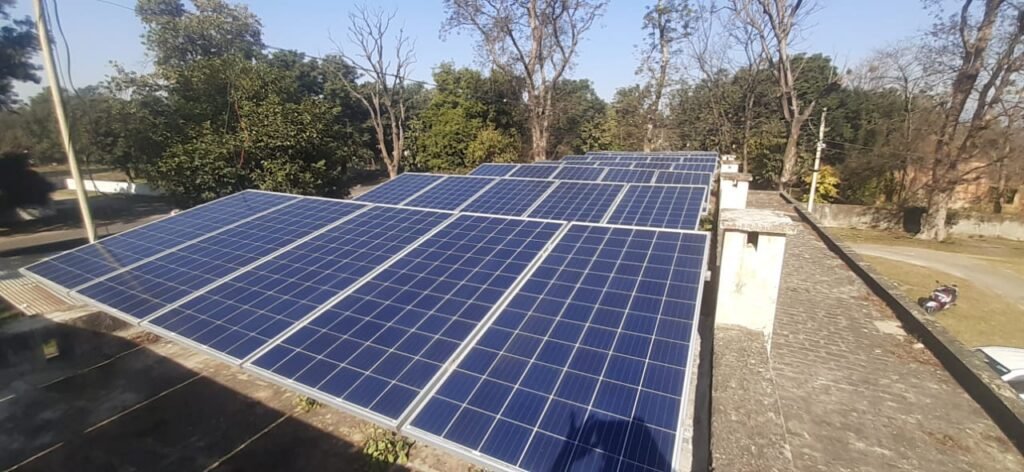Solar Rooftop

Solar rooftop systems have revolutionized the way we generate and consume electricity. In the face of environmental challenges and the need for sustainable energy sources, solar rooftop systems offer a practical, eco-friendly solution. By harnessing the power of sunlight and converting it into usable electricity, these systems have become a cornerstone of renewable energy initiatives worldwide.
Harnessing Solar Energy:
Solar rooftop systems utilize photovoltaic (PV) panels to capture sunlight and transform it into clean, renewable energy. This technology involves the use of semiconductor materials, typically silicon, which, when exposed to sunlight, generate a flow of electricity. Unlike traditional fossil fuel-based power generation, solar rooftop systems produce electricity without emitting harmful greenhouse gases, making them a crucial player in the fight against climate change.
Residential and Commercial Applications:
Solar rooftop systems are versatile and can be installed on a wide range of structures, including residential homes, commercial buildings, industrial facilities, and even agricultural farms. They come in various sizes, from small residential setups to large-scale commercial installations, catering to diverse energy needs.
Advantages of Solar Rooftop Systems:
The benefits of solar rooftop systems are multifaceted:
1. Renewable Energy Source: Solar energy is an infinite and renewable resource, ensuring a long-term and sustainable power supply.
2. Energy Cost Savings: By generating their own electricity, individuals and businesses can significantly reduce their energy bills, leading to substantial savings over time.
3. Environmental Impact: Solar power is clean and green, producing no pollution or emissions during operation. Using solar energy helps combat air pollution and reduces reliance on finite fossil fuel resources.
4. Grid Independence: Solar rooftop systems can operate independently or in conjunction with the grid. Excess energy generated can often be fed back into the grid, creating a symbiotic relationship between consumers and utility providers.
5. Low Maintenance: Solar panels have minimal moving parts, translating to low maintenance requirements. Routine cleaning and occasional checks ensure optimal performance.
Government Support and Incentives:
Many governments encourage the adoption of solar rooftop systems through subsidies, tax incentives, and favorable policies. These initiatives aim to accelerate the transition to renewable energy and make solar installations more accessible to a broader population.


